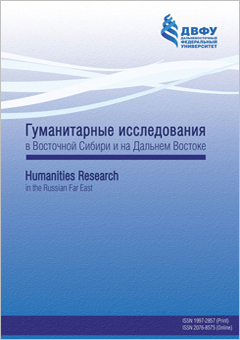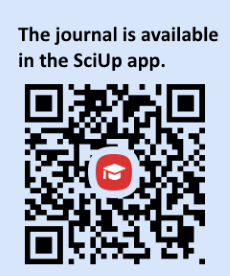Zhenjiu therapy in the USSR from the 1950s to the 1970s: three factors of integration into public healthcare
DOI:
https://doi.org/10.24866/1997-2857/2022-4/16-25Keywords:
healthcare, history of medicine, Traditional Chinese medicine, Sino-Soviet relationsAbstract
The article focuses on the practice of integrating Zhenjiu therapy into the health care system of the USSR, which took place against the backdrop of the development of large-scale cooperation between the USSR and China in the 1950s. The Soviet medical community, which was formed under the influence of the concept of medical police and Bolshevik ideology, was skeptical of traditional medicine, so the use of Zhenjiu therapy in the USSR presents a rare case of integrating traditional medicine methods into the rigid Soviet healthcare system. The author concludes that the integration of Zhenjiu therapy into the healthcare system of the USSR became possible due to the influence of scientific-medical, ideological and political factors.
Downloads
References
Василенко А.М. Методология традиционной китайской медицины в аспекте современной науки // Международный журнал «Содружество». 2017. № 19. С. 19–25.
Вишленкова Е.А. «Выполняя врачебные обязанности, я постиг дух народный»: самосознание врача как просветителя государства (Россия, первая половина XIX в.) // Ab Imperio. 2011. № 2. С. 47–79.
Гатина З.С., Вишленкова Е.А. Система научной аттестации в медицине в России в первой половине XIX в. // Вестник Санкт-Петербургского государственного института культуры. 2014. № 1. С. 168–178.
Гойденко В., Тян В. Развитие рефлексологии и создание государственной научно-практической службы рефлексотерапии в России // Врач. 2013. № 11. С. 75–78.
Нагорных О.С. Трансформация понятия «традиционная китайская медицина» в рецепции советского врача: социокультурные контексты этики медицины // Вопросы истории. 2021. № 11-2. С. 277–287.
Нагорных О.С., Шок Н.П. Командировки советских врачей в КНР в 1950–1960-е гг.: реализация планов сотрудничества в сфере медицины и здравоохранения // Вестник Томского государственного университета. История. 2020. № 65. С. 75–85.
Номогоева В.В. Тибетская медицина в Бурятии в контексте социальной модернизации 1920–30-х гг. // Acta Biomedica Scientifica. 2009. № 3. С. 284–286.
Попов Г.И. Русская народно-бытовая медицина: по материалам этнографического бюро князя В.Н. Тенишева. СПб.: Тип. А.С. Суворина, 1903.
Самойленко В.В. Глобализация традиционной китайской медицины // Проблемы Дальнего Востока. 2019. № 6. C. 150–155.
Сточик А.М., Затравкин С.Н., Сточик А.А. Становление государственной медицины во второй половине XVIII – первой половине XIX в. Сообщение 2. Создание государственных систем подготовки медицинских кадров и призрения социально незащищенных групп населения // Проблемы социальной гигиены, здравоохранения и истории медицины. 2013. № 2. C. 41–45.
Таранова А.С., Удалова С.Н. Лекарственные препараты, открытые и синтезированные в годы Великой Отечественной войны // Медицина в годы Великой Отечественной войны. Материалы IV научно-теоретической онлайн-конференции (с международным участием) (Курск, 18 мая 2021 г.). Курск: Курский государственный медицинский университет, 2021. С. 203–206.
Ху Я., Арташкина Т.А. Китайская традиционная медицина в контексте социокультурной глобализации // Исторические, философские, политические и юридические науки, культурология и искусствоведение. Вопросы теории и практики. 2015. № 9. Ч. 1. С. 184–189.
Jabbari, A., Tabasi, S. and Masrour-Roudsari, J., 2019. Western medical acupuncture is an alternative medicine or a conventional classic medical manipulation. Caspian Journal of Internal Medicine, Vol. 10, no. 2, pp. 239–240.
Downloads
Published
Issue
Section
License
Copyright (c) 2022 Максим Александрович Онётов

This work is licensed under a Creative Commons Attribution-NonCommercial-NoDerivatives 4.0 International License.














